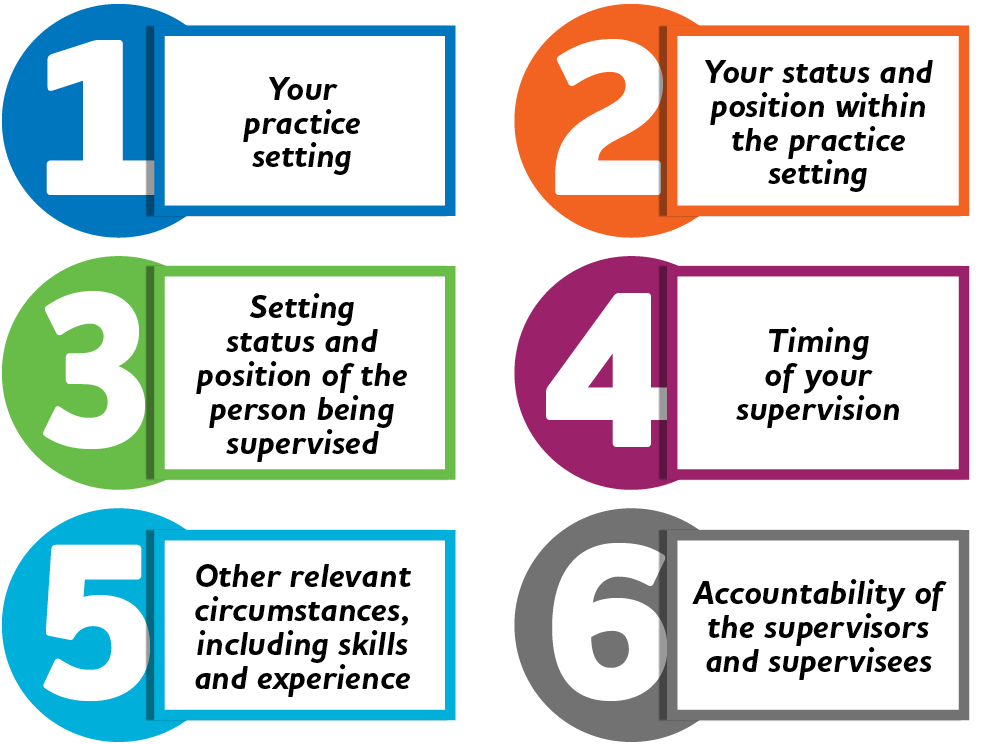By Richard Steinecke
Counsel, Steinecke Maciura LeBlanc
Supervision requires the application of sound professional judgment to various circumstances and can be taken on by pharmacy professionals who are not the Designated Manager.
Here are six things to consider when supervising pharmacy practice, including in drug preparation premises:
Six Things to Consider When Supervising Pharmacy Practice

1. Your Setting
Due to the inherent risks that exist, the specific safeguards in place, and the various legislative and regulatory expectations that apply, the nature of supervision may vary with practice settings. For example, direct supervision by a pharmacist is required in all community pharmacies while it may be different in other settings, such as a hospital or a drug preparation premises. Pharmacists need to be aware of any specified requirements in each type of setting as outlined in the Standards of Practice.
2. Your Status and Position
Supervision requirements will also vary somewhat with the status and position one holds within a practice setting. In a community pharmacy setting, a Designated Manager (DM) has responsibilities to supervise the setting as well as the staff. For example, as stated in the College’s policy on Designated Manager – Professional Supervision of Pharmacy Personnel:
the DM has authority and accountability over decisions affecting the operation of a pharmacy. It is the responsibility of the DM to effectively oversee the day-to-day management of the pharmacy, including all aspects of the operation of any remote dispensing location(s) permitted through the certificate of accreditation. The DM’s human resources responsibilities are both functional and strategic. For example, not only must the DM establish job descriptions and a performance measurement and improvement system for pharmacy employees, but the DM must also ensure that, at all times, staffing in the pharmacy supports the pharmacist(s) in their cognitive and patient care functions.
In other healthcare settings, the most responsible person (MRP) overseeing pharmacy services is responsible for ensuring appropriate pharmacy supervision.
Pharmacists (who are not the DM or MRP) and other registrants do not have an overarching duty to supervise the site or other pharmacists. However, when they are the most responsible registrant on the premises, they assume some responsibility for the setting, such as addressing any security or privacy issues that arise.
In addition, the duty of professionalism of all registrants present means they have a duty to raise concerns that arise which could affect patient safety or efficacy of treatment. Where assigned certain tasks (e.g., such as assisting in the orientation of a new colleague), they must do so diligently.
Registrants who are not DMs or MRPs also have a duty to participate in their own supervision including reviewing, understanding and following (where professionally appropriate) policies and procedures set by the DM or MRP.
3. Status and Position of the Person Being Supervised
The degree of supervision varies with the status and position of the person being supervised. For example, a DM or MRP does not need to be present and directly supervise a pharmacist where a drug is dispensed, unless there are special circumstances requiring it (e.g., where there are specific terms, conditions and limitations on the pharmacist’s certificate of registration).
However, either the DM or a pharmacist must be present and directly supervise a pharmacy intern, a registered pharmacy student or a pharmacy technician where a drug is dispensed in a community pharmacy setting.[1] Also, where an unregistered person (for example, pharmacy assistant) is assigned tasks, the supervising registrant has a higher duty of supervision.
While being physically present is a requirement for direct supervision in a community pharmacy setting, appropriate supervision requires more than just being physically present. As the College Fact Sheet on Supervision of Pharmacy Students & Interns says:
Effective supervision requires the active engagement of all participants to ensure a quality learning environment while maintaining best possible patient care. It is important to discuss the extent of communication and collaboration expected between the supervisor(s) and student/intern when engaging in various activities. Pharmacy professionals are responsible for, and accountable to, their decisions and actions, therefore establishing a mutual understanding of expectations is encouraged.
4. Timing of Supervision
Supervision does not occur just when the act of dispensing or other professional service occurs. Supervision occurs before, during and after those events. For example:
- A DM or MRP must develop, review, orientate, and monitor implementation of all relevant policies and procedures in advance of professional interactions with patients.
- After the professional interaction, the DM or MRP must periodically monitor the effectiveness of the policies and procedures and make adjustments (e.g., to their content, to communicating about and ensuring compliance) to them.
- If an incident occurs, the DM or MRP must oversee a suitable response (e.g., communicating with the patient and the prescriber and those assisting the patient, and using the appropriate tools for conducting incident analysis and reporting as outlined in the mandatory AIMS Program) and conduct an analysis that leads to effective changes to the policies and procedures and their communication to the pharmacy team to prevent a reoccurrence.
Similarly, any pharmacist supervising a pharmacy intern, a registered pharmacy student, a pharmacy technician or, even, an unregistered assistant (supervisee) has to regularly assess the supervisee’s capabilities and convey expectations to them.
During the professional interaction, the supervising pharmacist must be appropriately involved at the suitable stages of the process to ensure that safe and effective outcomes result for the patient. After the professional interaction, the supervising pharmacist has to ensure that any gaps or learning opportunities for the supervisee receive attention.
5. Other Relevant Circumstances
Supervision expectations vary enormously with the circumstances. This variation is recognized in the definition of professional misconduct which includes “Failing to provide an appropriate level of supervision to a person whom the registrant is professionally obligated to supervise” as well as in the Code of Ethics.
For example, a pharmacist supervising an experienced pharmacy assistant whose skills and competencies are well known to the pharmacist may only need to minimally collaborate on the preparation of a routine prescription (e.g., dispensing solid oral dosage forms into vials or drugs that are being dispensed in the manufacturer’s packaging). However, even then some additional scrutiny may be required in riskier situations, such as a red flag patient receiving a red flag medication (e.g., preparing multi-medication compliance aids, weighing and measuring ingredients for an oral compounded liquid preparation).
On the other hand, a pharmacist overseeing a newly registered pharmacy student might need to conduct a detailed assessment of the student’s skills and competencies and, even then, walk the student through each of the major steps in the dispensing of a drug. In some cases, the supervising pharmacist may need to have the student only watch the pharmacist perform many of the steps.
Even a DM or MRP will need to exercise professional judgment in the supervision of pharmacists. For example, where a pharmacist has frequent and ongoing challenges in correctly following the steps to dispensing drugs, the DM or MRP may need, as a matter of professional diligence, to be physically present and monitoring performance.
6. Accountability
The accountability of the supervisors and supervisees will also vary depending on the circumstances. A DM or MRP may be held accountable for the policies and procedures (or lack thereof) that allowed the dispensing or compounding error to occur and for ensuring that the response to the error, including changes to policies and procedures, is sufficient to ensure that a similar incident is extremely unlikely to reoccur.
The person being supervised, especially if they are registered, will have shared accountability for their own errors and how they learned from it.
Supervision requires the exercise of professional judgment before, during, and after the professional interaction with a patient. It includes awareness of the supervisor’s setting, status and position, the supervisee’s status and position, other relevant circumstances and the level of accountability.
Additional Resources
- There are some exceptions for an accredited hospital pharmacy and remote dispensing locations. ↑













